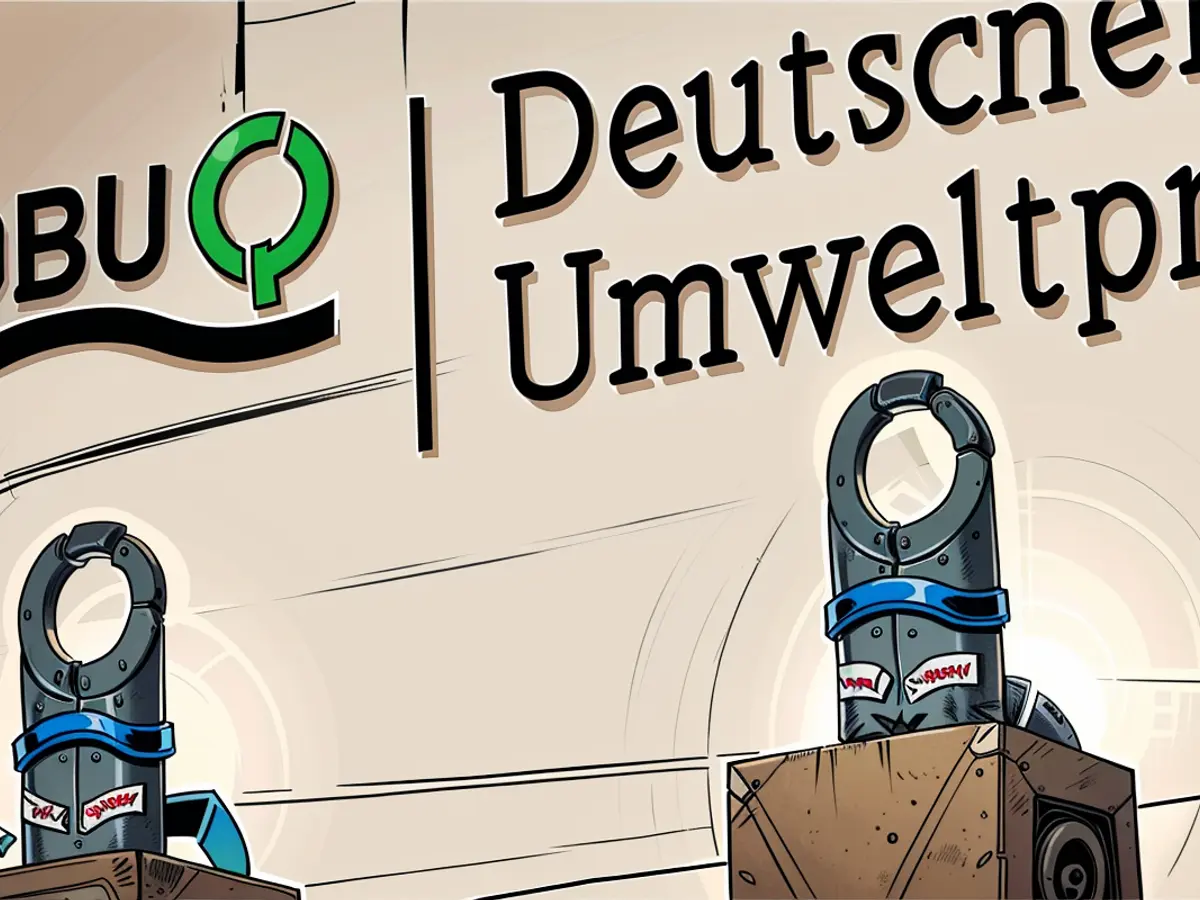- Nuremberg-based engineer and wetland investigator honored with an environmental accolade
For his innovations in electric vehicle mobility and a rapid charging system, German entrepreneur Thomas Speidel will receive the German Environmental Prize this year. The prize, worth €500,000 and presented by the German Federal Environmental Foundation (DBU), will also be shared with peat researcher Franziska Tanneberger from Greifswald, honored for her efforts in peatland restoration. German President Frank-Walter Steinmeier will present the award on October 27 in Mainz.
Speidel, founder and CEO of rapid charging specialist ADS-TEC Energy in the Swabian Alb, is being recognized by the DBU for his brave transition of his family business from a combustion engine supplier to an innovation driver for energy transition. His company has developed high-performance systems, including those that enable electric car charging in minutes, it was stated. These battery-buffered fast chargers, according to Speidel, can be installed flexibly on streets, company buildings, and residential areas without garages or wall boxes.
Charging in just a few minutes instead of hours
With systems like the ChargeBox, energy is gradually and steadily fed into the storage system, which is only slightly larger than a square meter, and then releases large amounts at once during charging. "Like a toilet cistern that fills up slowly and empties quickly when used," explains Speidel.
These battery-buffered super-fast chargers, according to the environmental prize jury, can charge electric vehicles in minutes, even with weak networks, and generate returns in other areas, storing locally generated solar energy and cheap energy from the network during periods of excess generation.
DBU Secretary General Alexander Bonde also praised Speidel's "strategic foresight and necessary entrepreneurial risk-taking." Innovations like those of the entrepreneur are "true pioneers" for more electromobility, climate protection, and a comprehensive energy transition, he said.
Entrepreneur warns of missed opportunity for industry
However, the industry is under significant pressure. According to government plans, 15 million electric vehicles are expected to be registered nationwide by 2030 - more than ten times the number in 2023. In the same period, one million public charging points are expected to be installed nationwide - also a tenfold increase.
Speidel sees a need for a stronger and clearer focus in politics on this path. He also warns of a missed opportunity. "The question is no longer whether we want electrification and whether photovoltaics or wind can make significant contributions to energy supply," he said to the German Press Agency. "These fundamental questions have been answered, as has the question of the future drive. It is electrical."
Political consensus-building and lobbyists can hinder the introduction of innovations. Many ideas are like a "fantasy world" and not compatible with reality. In addition, society and the economy are burdened by a complex and stifling bureaucracy. "The road to implementation is incredibly slow, and society and the economy are excessively burdened by a stifling bureaucracy," said Speidel.
Germany has already lost its solar industry and battery producers. "And now the question arises as to whether key industries such as mechanical engineering and the automotive industry will be next," said the Nürtingen entrepreneur.
Peatlands are essential for climate protection
Scientist Tanneberger is considered a key figure in the revitalization and rewetting of peatlands by the DBU. She is also a bridge between science, politics, and agriculture. Natural and wet peatlands play a crucial role in climate protection by absorbing and storing carbon dioxide from the atmosphere. According to Tanneberger, peatlands are also water storage and essential for biodiversity.
However, more than 90% of Germany's peatlands have been drained, allowing climate-damaging greenhouse gases to escape. Nationwide, dry peatlands account for 7% of greenhouse gas emissions and are the cause of biodiversity loss. Tanneberger has shown through her work how peatland protection and agriculture can coexist, it was stated.
The German Environmental Award is presented annually by the DBU for influential and exemplary achievements in the protection and conservation of the environment.
Speidel emphasizes the need for a stronger focus in politics on electrification and energy transition, as the industry faces significant pressure with the expected increase in electric vehicles and charging points.
Peatlands, being crucial for climate protection, account for 7% of greenhouse gas emissions in Germany and are a cause of biodiversity loss due to over 90% of them being drained, highlighting the importance of peatland protection and agriculture coexistence.








